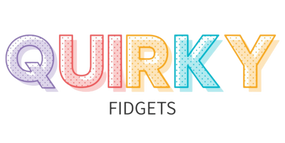In a world that often demands constant attention and rapid response, finding moments of mindfulness can be challenging. Mindfulness, the practice of being fully present and engaged in the moment, has been linked to numerous health benefits, from reduced stress to improved concentration. Interestingly, one of the more playful tools at our disposal for fostering mindfulness is sensory toys. These are not just for children; adults can find equal pleasure and mindfulness benefits from engaging with sensory toys. Let's explore how these toys can be a bridge to a more mindful existence.
What Are Sensory Toys?
Sensory toys are designed to stimulate one or more of the senses: touch, sight, sound, smell, and even taste. They range from simple items like stress balls and fidget spinners to more complex gadgets that offer a variety of textures and movements. The common thread among all sensory toys is their ability to captivate attention through sensory interaction, grounding the user in the present moment.
Benefits of Sensory Toys for Mindfulness
-
Promotes Present-Moment Awareness: Engaging with a sensory toy requires attention to the here and now. This act of focusing on the tactile sensations, movements, or visual patterns of the toy can help quiet the mind, redirecting thoughts from past worries or future anxieties to the current experience.
-
Reduces Stress and Anxiety: Sensory toys can act as a physical outlet for stress and nervous energy. The repetitive actions of squeezing, twisting, or spinning a toy can serve as a meditative practice, slowing down breathing and reducing levels of stress hormones.
-
Enhances Concentration: For both children and adults, sensory toys can improve concentration and attention to tasks. By providing a sensory focus, these toys can minimize distractions, helping the brain to engage more fully with work or study.
-
Improves Sensory Regulation: Sensory toys are particularly beneficial for individuals with sensory processing issues, such as those with Autism Spectrum Disorder (ASD) or Attention Deficit Hyperactivity Disorder (ADHD). They offer a safe way to explore sensory input, which can help improve regulation and tolerance to sensory experiences in daily life.
-
Encourages Mindful Exploration: Sensory toys invite exploration and curiosity, essential components of a mindful approach to life. By engaging the senses in playful and explorative ways, individuals can foster a deeper connection to their sensory environment, enhancing overall mindfulness.
Incorporating Sensory Toys into Mindfulness Practice
Incorporating sensory toys into a daily mindfulness practice can be simple. Begin by choosing a toy that resonates with you, whether it be the tactile feedback of a stress ball, the visual appeal of a liquid motion bubbler, or the satisfying click of a fidget cube. Dedicate a few minutes each day to engage with the toy, focusing your attention fully on the sensory experience it provides. Notice any thoughts or feelings that arise, acknowledging them without judgment before gently redirecting your focus back to the toy.
Conclusion
Sensory toys offer a unique and accessible path to mindfulness, providing tangible benefits that extend beyond mere play. By engaging our senses, these toys can help anchor us in the present, reduce stress, and improve our overall mental well-being. Whether used as a tool for stress relief, a method to boost concentration, or a way to explore sensory experiences, sensory toys can enrich our mindfulness practice and enhance our quality of life.
In exploring the mindful benefits of sensory toys, we are reminded of the importance of play and sensory exploration at any age. So, the next time you feel overwhelmed or disconnected, consider reaching for a sensory toy as a bridge back to the present moment, to mindfulness, and to a sense of inner calm.








